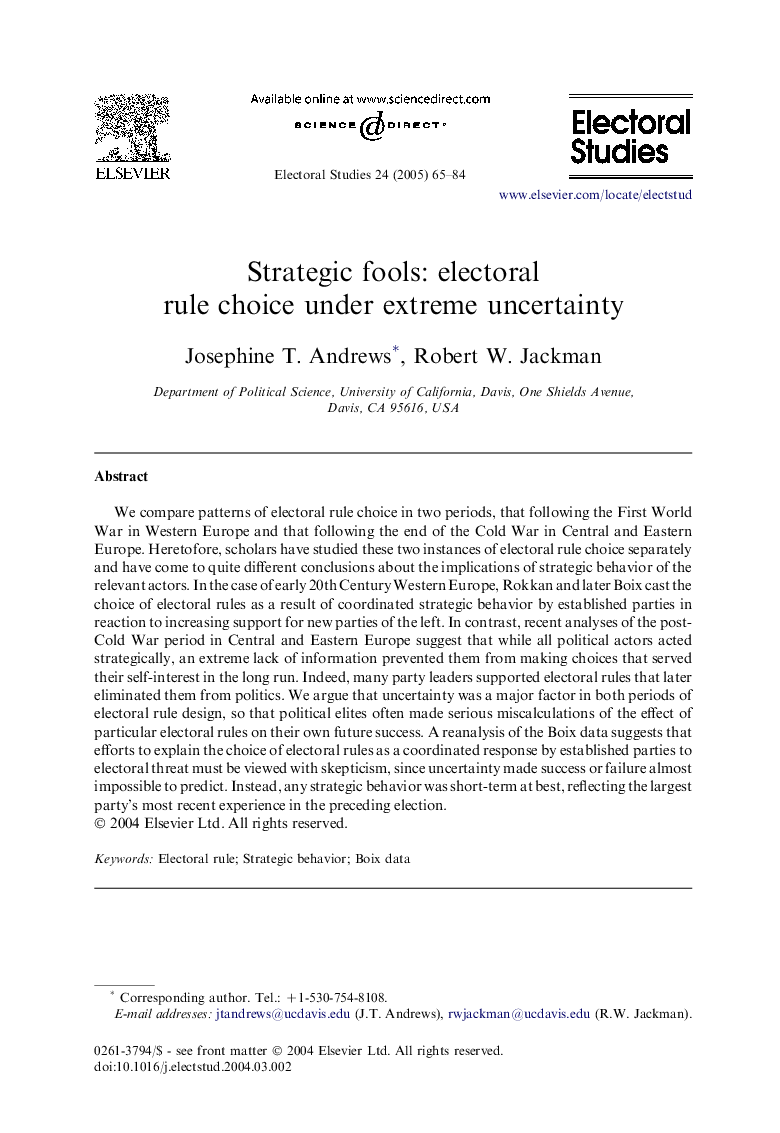| کد مقاله | کد نشریه | سال انتشار | مقاله انگلیسی | نسخه تمام متن |
|---|---|---|---|---|
| 10504112 | 946407 | 2005 | 20 صفحه PDF | دانلود رایگان |
عنوان انگلیسی مقاله ISI
Strategic fools: electoral rule choice under extreme uncertainty
دانلود مقاله + سفارش ترجمه
دانلود مقاله ISI انگلیسی
رایگان برای ایرانیان
کلمات کلیدی
موضوعات مرتبط
علوم انسانی و اجتماعی
علوم اجتماعی
جغرافیا، برنامه ریزی و توسعه
پیش نمایش صفحه اول مقاله

چکیده انگلیسی
We compare patterns of electoral rule choice in two periods, that following the First World War in Western Europe and that following the end of the Cold War in Central and Eastern Europe. Heretofore, scholars have studied these two instances of electoral rule choice separately and have come to quite different conclusions about the implications of strategic behavior of the relevant actors. In the case of early 20th Century Western Europe, Rokkan and later Boix cast the choice of electoral rules as a result of coordinated strategic behavior by established parties in reaction to increasing support for new parties of the left. In contrast, recent analyses of the post-Cold War period in Central and Eastern Europe suggest that while all political actors acted strategically, an extreme lack of information prevented them from making choices that served their self-interest in the long run. Indeed, many party leaders supported electoral rules that later eliminated them from politics. We argue that uncertainty was a major factor in both periods of electoral rule design, so that political elites often made serious miscalculations of the effect of particular electoral rules on their own future success. A reanalysis of the Boix data suggests that efforts to explain the choice of electoral rules as a coordinated response by established parties to electoral threat must be viewed with skepticism, since uncertainty made success or failure almost impossible to predict. Instead, any strategic behavior was short-term at best, reflecting the largest party's most recent experience in the preceding election.
ناشر
Database: Elsevier - ScienceDirect (ساینس دایرکت)
Journal: Electoral Studies - Volume 24, Issue 1, March 2005, Pages 65-84
Journal: Electoral Studies - Volume 24, Issue 1, March 2005, Pages 65-84
نویسندگان
Josephine T. Andrews, Robert W. Jackman,